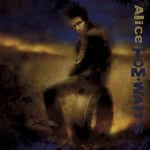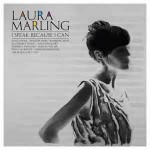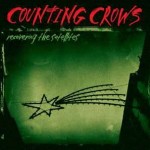 “I got out of college and came here hoping I might make a reasonable living writing for magazines. It seemed like a crazy dream when I was in high school, something so glamorous and grand that you had to be very special to do. But then this happened and that happened, and it began to seem less ridiculous. I wrote a music column for New York after I graduated, then I did the same thing for The New Yorker, then I wrote books. I never wanted to be a millionaire or a billionaire or anything at all like that, because the happiest thing would be doing what I love. Which is how it turned out, and so it goes with talented and thoughtful people who move to places like New York and L.A. and Chicago and Austin and wherever else you take your wits these days. It isn’t just creative types, also public-interest lawyers and public-intellectual academics and political thinkers – collectively, the professional class. In a city, these are the people who make the place vital and fun. They work hard but still have time to try a no-reservations restaurant on the Lower East Side or to check out the small boutiques in Nolita and help interesting young designers get off to a start. Mostly, they make six-figure incomes and somehow manage. And they are happy for the privilege. But these are people who soon won’t exist anymore. Soon New York will be nothing but a metropolis of the very rich and those who serve them – and the lucky and desperate still hanging on. All of the fun jobs are disappearing.” – Elizabeth Wurtzel, 2013
“I got out of college and came here hoping I might make a reasonable living writing for magazines. It seemed like a crazy dream when I was in high school, something so glamorous and grand that you had to be very special to do. But then this happened and that happened, and it began to seem less ridiculous. I wrote a music column for New York after I graduated, then I did the same thing for The New Yorker, then I wrote books. I never wanted to be a millionaire or a billionaire or anything at all like that, because the happiest thing would be doing what I love. Which is how it turned out, and so it goes with talented and thoughtful people who move to places like New York and L.A. and Chicago and Austin and wherever else you take your wits these days. It isn’t just creative types, also public-interest lawyers and public-intellectual academics and political thinkers – collectively, the professional class. In a city, these are the people who make the place vital and fun. They work hard but still have time to try a no-reservations restaurant on the Lower East Side or to check out the small boutiques in Nolita and help interesting young designers get off to a start. Mostly, they make six-figure incomes and somehow manage. And they are happy for the privilege. But these are people who soon won’t exist anymore. Soon New York will be nothing but a metropolis of the very rich and those who serve them – and the lucky and desperate still hanging on. All of the fun jobs are disappearing.” – Elizabeth Wurtzel, 2013
“I have a little speaker [on my balcony], so I can make up tapes and play them. So I get up, around 10 or 11, I mosey out there, and I start writing the next scene. Later, I’ll get in the pool, and I’ll swim around and think about what I’ve done. If I know I’m really not done with a scene, I think, ‘OK, what do I want to do? How can I make it better?’ If I am done with it, then I’m in the pool doing the same thing: ‘What’s next? What happens next?’ And I’ve got to tell you, it’s as close to bliss as I’ve ever achieved, in that space, doing that.” – Quentin Tarantino, 2012
“When I was a kid, I had one of these Hot Wheel devices designed to look like a little gas station. Inside the gas station were two spinning rubber wheels. One’s little car would weakly approach the gas station, then be sent forth by the spinning rubber wheels to take another lap around the track, or, more often, fly out and hit one’s sister in the face. A story can be thought of as a series of these little gas stations. The main point is to get the reader around the track; that is, to the end of the story. Any other pleasures a story may offer (theme, character, moral uplift) are dependent upon this … So, if the writer can put together enough gas stations, of sufficient power, distributed at just the right places around the track, he wins: The reader works his way through the full execution of the pattern, and is ready to receive the ending of the story.” – George Saunders, 2007
“The word success, my earliest understanding of the word and the way it imprinted itself on my mind, has always been so divorced from anything having to do with me. I recall a cheerleading tryout where we had to spell the word success accompanied by a series of claps (I did not make the team). I recall school teachers using the word in sentences and my feeling like it was a completely alien concept. Success is a measurable achievement. It implies a finish. ‘There, that’s done.’ That has nothing to do with my writing. Writing is never done. When I first answered this question I typed, ‘I want to create an object that shows how I uniquely experience things, how the world looks to me and what it sounds like,’ but I am cutting it (sort of) because it sounds not quite right. It’s more like there’s a rhythm that I hear in the hum of the world. I just like to take note of that rhythm and how strange it seems to me. I like to try to get it down and then read it back and try to match it – what’s in my head, what’s on the page. If I hear it coming up from the page (which doesn’t happen often) in that moment it isn’t success, it’s relief, like hearing a song I wanted to hear. It might not be a good song, but it’s my song.” – Deb Olin Unferth, 2006
“I think I was 40 before I realized that almost every writer of fiction and poetry who has ever published a line has been accused by someone of wasting his or her God-given talent. If you write (or paint or dance or sculpt or sing, I suppose), someone will try to make you feel lousy about it, that’s all. I’m not editorializing, just trying to give you the facts as I see them.” – Stephen King, 2000
“I could go on at length about how I write to convey my anger at all I think is wrong in this world, or I could speak of the mystery of the novelist’s aesthetic – ah, to be able to create a world that exists on the terms one has given it! – or I could even, unlike Jean Malaquais, be able to say, ‘When it’s a matter of making a living, you can’t beat the hours.’ But finally, I subscribe to his reply. For me, it has the advantage of being incontestably true. The only time, right or wrong, that I feel a quintessential religious emotion – that the power of the truth is in me – comes on occasion when I write, no, even better: The only time I know the truth is at the point of my pen.” – Norman Mailer, 1998
“Advice? Somebody should have told me not to join a fraternity, but to hang out with the independents, who were not then numerous. I would have grown up faster that way. Somebody should have told me that getting drunk, while fashionable, was dangerous and stupid. And somebody should have told me to forget about higher education, and to go to work for a newspaper instead. That is what a lot of the most promising and determined young writers used to do back then. Nowadays, of course, you can’t get a job on a newspaper if you don’t have a college education. Too bad.” – Kurt Vonnegut, 1995
“I’ve never written anything in my life or done any project that wasn’t what I wanted to do at the time. You really have to forget about what they call ‘career moves.’ You just do what you want to do for your own sense of your creative life. If no one else wants to see it, that’s fine. Otherwise, you’re in the business to please other people. When we did Stardust Memories, all of us knew there would be a lot of flack. But it wouldn’t for a second stop me. I never thought, I better not do this because people will be upset. It’d be sheer death not to go through with a project you feel like going through with at the time. Look at someone like Strindberg – another person I’ve always loved – and you see the reaction he got on certain things … just brutalized. When I made Annie Hall, there were a lot of suggestions that I make Annie Hall II. It would never occur to me in a million years to do that. I was planning to do Interiors after that, and that’s what I did. I don’t think you can survive any other way. To me, the trick is never to try to appeal to a large number of people, but to do the finest possible work I can conceive of, and I hope if the work is indeed good, people will come to see it. The artists I’ve loved, most did not have large publics. The important thing is the doing of it. And what happens afterward – you just hope you get lucky. Even in a popular art form like film, in the U.S. most people haven’t seen The Bicycle Thief or The Grand Illusion or Persona. Most people go through their whole lives without seeing any of them. Most of the younger generation supporting the films that are around now in such abundance don’t care about Bunuel or Bergman. They’re not aware of the highest achievements of the art form. Once in a great while something comes together by pure accident of time and place and chance. Charlie Chaplin came along at the right time. If he’d come along today, he’d have had major problems.” – Woody Allen, 1995
“When there is no censorship the writer has no importance. So it’s not so simple to be against censorship.” – Susan Sontag, 1977
“What is there that confers the noblest delight? What is that which swells a man’s breast with pride above that which any other experience can bring to him? Discovery! To know that you are walking where none others have walked; that you are beholding what human eye has not seen before; that you are breathing a virgin atmosphere. To give birth to an idea, to discovery a great thought – an intellectual nugget, right under the dust of a field that many a brain-plough had gone over before. To find a new planet, to invent a new hinge, to find a way to make the lightnings carry your messages. To be the first – that is the idea.” – Mark Twain, 1869





